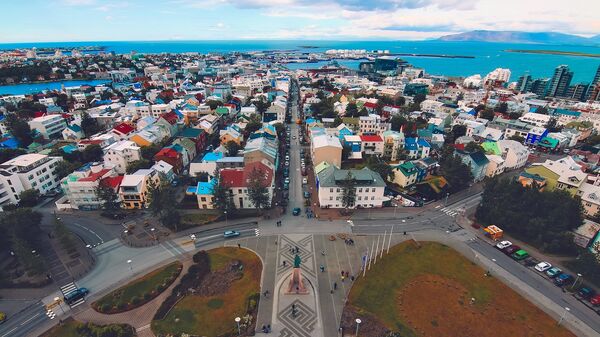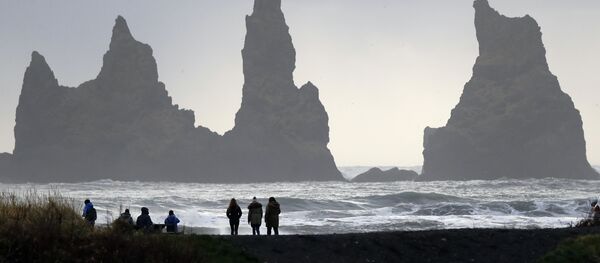Kristian Rouz – The Icelandic economy grew at its fastest rate since the 2008 bank sector collapse and the subsequent economic and policy turmoil, having posted a GDP expansion of 11.3pc in 4Q16 as tourism and an influx of investment money helped the island nation overcome the hard times.
Subsequently, the government of Iceland, concerned of the krona’s revaluation stemming from the speculative carry trade, announced it would end capital controls effective Tuesday in order to stave off the looming currency market bubble.
The move will “create more trust in the Icelandic economy,” as private enterprises will no longer have to return foreign exchange. “That will make direct foreign investment easier,” Prime Minister Bjarni Benediktsson said.
The krona’s FX rate has long been too high, hindering the development of national industries, most prominently, fisheries and aluminium production, and undermining Iceland’s export potential. Carry trade is to blame, most analysts agree, as the krona has risen by 19pc against the euro and 15pc against the dollar since March 2016, and was poised to rise further in the capital controlled environment, Arion banki observed earlier this month.
“If the appreciation of the krona continues we’ll reach the point where people will start to wonder whether it makes sense to fully process fish in Iceland,” said Heidrun Lind Marteinsdottir of Fisheries Iceland.
Now, as the Icelandic government has announced the end of capital controls, the krona tumbled slightly, meaning the risks of overheating might have eased somewhat. The strong krona had encouraged the return flow of capital into Iceland, and the oversaturation of the local money market without opportunities to reinvest bore hazards of a money bubble.
“We don’t have any exact hints as to what comes next,” Benediktsson admitted. He expressed hope that the removal of capital controls would encourage foreign investment.
The krona dropped 3.7pc against the euro on Monday. The Icelandic central bank might cut its base interest rate to 4.75 from 5pc on March 15, Arion banki said, in order to support further devaluation of the krona.
“The liberalisation should pave the wave for an upgrade and also a rate cut by the central bank,” Valdimar Armann of Gamma, a fund manager in Reykjavik, said. “The economy is in a robust shape with healthy growth, low unemployment and a positive trade balance, which will continue to interest foreign investors to invest into Iceland.”
According to the observations by the international rating agency Standard & Poor’s made in January, the lifting of capital controls would contribute to further improvement of Iceland’s sovereign rating, currently at A-. The nation already boasts a solid foreign trade surplus and solid central bank reserves, but the broader economy is at risk of overheating, the agency said.
Another problem with the too strong krona is that inflation is still below the central bank’s target, which hinders domestic consumption and subtracts points from GDP growth.
It is yet unclear whether the removal of capital controls will be enough to overcome the structural imbalances in the economy and prevent the systemic risks from unravelling further, but Iceland’s full reintegration into the global system of international money flows is generally a positive development.




